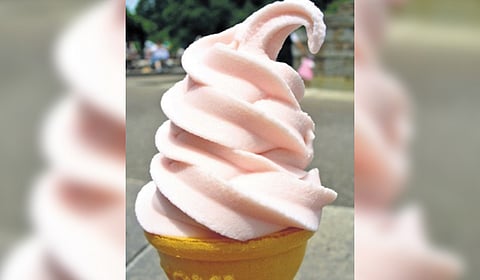

NEW DELHI: In a recent ruling, the Rajasthan Advance Ruling Authority (AAR) has held that the dried softy ice-cream mix (low fat) in vanilla flavour, known as Vanilla Mix, is not dairy product and hence will be taxed at 18% instead of 5%.
The ruling signifies a shift in the classification of the product, and the decision is expected to have major implications for manufacturers and distributors in the food industry.
The advance ruling authority observed that the major ingredient of the product is sugar, and that the product “milk solids are added to sugar” and not that “sugar is added to milk solids”.
The AAR deciphered that the said product is intended to be used to make soft serves using machines, which work on a continuous process of freezing and churning to a create smooth and creamy texture characteristic of soft serves. It further said that each ingredient plays a vital role to make the soft serve smooth and creamy in texture.
The advance ruling authority’s decision came after VRB Consumer Products, a manufacturer and supplier of dried softy ice cream, sought clarification on the issue. The vanilla mix that the applicant intends to manufacture contains 61.2% sugar, 34% milk solids and 4.8% other ingredients. The ruling was passed by Mahipal Singh (Member, Central Tax) and Mahesh Kumar Gowla (Member, State Tax).
According to Sandeep Sehgal, Partner-Tax, AKM Global, a tax and consulting firm, this ruling stands in contrast to the Supreme Court’s decision in Amrit Foods, where the court classified ‘milk shake mix’ and ‘soft serve mix’ for institutional sales as ‘dairy produce’.
“The divergence between these rulings underscores the complexities businesses face when classifying products for GST purposes, highlighting the importance of ingredient composition and product usage in determining tax liability,” Sehgal added.
Pune-based Pritam Mahure said that such issues come up across the world in GST and VAT. “There are debates if it is peanut butter in chocolate or chocolate in peanut butter, or it is biscuit with chocolate layer or chocolate with biscuits,” he said.
The fundamental reason for these types of debates is the differential rates of GST or VAT on the products. While the taxpayer will always try to minimise the tax impact, the authorities will always try to maximise the tax revenue, and thus this debate is never ending, said Mahure.